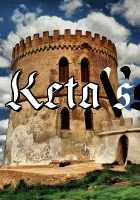Random House, the largest trade book publisher in the U.S., announced last week that it is adopting the agency model for selling e-books. For readers and authors concerned about a diverse literary marketplace, this is welcome news, a chance for online bookselling to avoid the winner-take-all trap. Random House's move gives brick-and-mortar bookstores, many of which are now selling e-books but cannot afford to lose money on those sales, a fighting chance in the new print + digital landscape.
"Book retailers have faced extraordinary challenges in recent years," said Authors Guild President Scott Turow, "a double whammy of recession and a shift to digital books that had cut many stores out. For anyone who loves bookstores, this is the best news out of the publishing industry in a long time. Random House's move may prove to be a lifeline for some bookstores."
Apple introduced the agency model into bookselling last year when it launched the iPad and the iBookstore. In January 2010, as Steve Jobs was announcing Apple's new device, Amazon controlled an estimated 90% of the U.S. e-book market. The price of entry into that market was steep: Amazon, using the reseller model for e-books, was routinely selling e-books at a substantial loss to build the market and to ward off competitors such as Barnes & Noble, which had just begun selling the Nook. As we described in last month's alert (How Apple Saved Barnes & Noble. Probably.):
Apple wouldn't sell e-books under the reseller model that Amazon had been using to lock down the market. (Under that model, the publisher sells e-books to a reseller at a discount of about 50%. The reseller can then sell the e-book at any price, constrained only by antitrust law and the reseller's ability to absorb losses.) Instead, Apple would sell e-books under the same "agency model" it used for iPhone apps. Under the agency model, Apple acts as the publisher's agent, selling e-books at the price established by the publisher and taking a 30% commission on each sale. To participate, a publisher would have to agree to a set of ceilings on e-book prices, generally $12.99 or $13.99 for new books. A publisher would also have to agree not to sell to others under more favorable terms.
If the agency model took hold, unfettered discounting of e-books would be out. Amazon would lose its ability to buy market share in a nascent, booming industry.
Macmillan leapt at the agency model, and Amazon fought back. In a dramatic, week-long showdown, Amazon removed the buy buttons from print and digital editions of virtually all of Macmillan's books. Macmillan stood firm, and five of the big six trade publishers (all except Random House) quickly adopted the agency model. The Guild immediately backed the agency model as essential for creating a healthy, diverse e-book retailing environment, even though it would mean lower royalties for many authors in the near term.
Barnes & Noble benefitted more than anyone from publishers' adoption of the agency model. It still had to subsidize sales of many Random House titles to stay in the game with Amazon, but it didn't have to lose money on the sales of other titles. Barnes & Noble's share of the e-book market grew at a pace that surprised everyone in the industry and is now approaching 20%.
The biggest beneficiaries of Random House's shift to the agency model may be independent booksellers, many of which are now selling e-books through an arrangement with Google. While Barnes & Noble could absorb some losses in selling Random House e-books, this was out of the question for most independent booksellers. Many readers will soon be able to support their local booksellers when they buy e-books, without paying a stiff price for their loyalty.
"Getting local booksellers into the e-book game is essential," said Mr. Turow. "Equally essential, if e-books are going to help sustain a vibrant literary culture, is restoring the traditional division of proceeds between authors and publishers. Random House and other major publishers have a lot of work to do on that score."
For a discussion of e-book royalties, see E-Book Royalty Math: The House Always Wins and The E-Book Royalty Mess: An Interim Fix.
--------------------------------
Feel free to forward, post, or tweet. Here is a short URL for linking: http://tiny.cc/3o9fa
Feel free to forward, post, or tweet. Here is a short URL for linking: http://tiny.cc/3o9fa














No comments:
Post a Comment